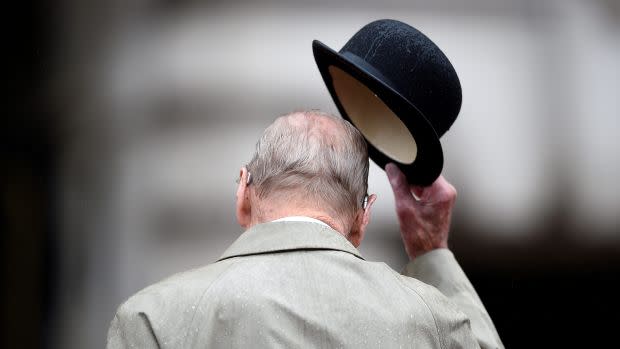What Prince Philip’s passing means for the British monarchy

Britain’s Prince Philip, Duke of Edinburgh and consort of Queen Elizabeth II, died today (April 9) at the age of 99. He had been sick for a long time, and stayed in the hospital for a month earlier this year, after which he underwent heart surgery. A statement from Buckingham Palace said that “His Royal Highness passed away peacefully this morning at Windsor Castle.”
It has been a complex and emotional few years for Britain’s royal family. A string of scandals sparked an unprecedented debate in the UK about the merits and drawbacks of the monarchy, an institution that can seem archaic to some, but whose members enjoy broad support among the British public. So, does Prince Philip’s death mean anything for its future?
What happens when a royal family member dies?
The plan for Prince Philip’s death, known as Operation Forth Bridge, has been laid out for a long time, but Covid-19 will impact its execution. The Duke of Edinburgh reportedly asked for a simple funeral that he was closely involved in planning.
Prince Philip is entitled to a ceremonial funeral, while state funerals are typically reserved for monarchs. But The Sun newspaper reports that he may have “requested what will fundamentally be a military funeral, with a private service held at St. George’s Chapel in Windsor and burial in Frogmore Gardens. Had the Duke of Edinburgh requested a state funeral, it would have likely involved a military procession to Westminster Abbey, where his body would lie in state for members of the public to pay their respects. A service at either Westminster Abbey or St. Paul’s Cathedral would have followed, before burial in St. George’s Chapel.”
How will Covid-19 impact Prince Philip’s funeral?
While the details of the funeral haven’t been made public, it’s sure to look different from the normal ceremony surrounding the death of a royal family member. Covid-19 regulations in the UK state that funerals can take place outdoors with a maximum of 30 guests if the organizers complete a risk assessment. If a funeral takes place indoors, like in a church, then the maximum number of guests is six, and they must all socially distance. That includes anyone working during the funeral.

Some of the UK government’s rules for organizing funerals during a pandemic.
Organizers will likely be hoping to avoid spontaneous gatherings of mourners in front of Buckingham Palace or during the funeral procession, because those could violate Covid-19 guidelines. The Sun reports that “a military presence is expected to honor the Duke of Edinburgh, while TV cameras will not be allowed inside the chapel for the service.”
What does Prince Philip’s death mean for Britain’s monarchy?
In 2020 Prince Philip’s grandson, Harry, and his wife, American actress Meghan Markle, stepped down from their roles as Duke and Duchess of Sussex and moved to the US for parts of the year, where they said they would “work to become financially independent.” They reportedly didn’t consult Harry’s grandmother, the Queen.
Earlier this year, the couple sat down for an explosive interview with Oprah Winfrey in which they revealed that before their son Archie was born, a member of the royal family asked how dark the baby would be. (Meghan is half-Black and her marriage to Harry was widely seen as heralding a new, more diverse chapter in the family’s history.) After the interview, there was so much speculation that the family member in question was Prince Philip (who is notoriously prone to gaffes) that Winfrey later clarified that the couple was neither referring to him nor Queen Elizabeth.
That’s not all. The royal family was tainted by the news of a friendship between Prince Andrew, the Queen’s third child, and Jeffrey Epstein, a convicted sex offender who died in prison in 2019 while awaiting trial on sex trafficking charges. After a disastrous interview with the BBC’s Emily Maitlis, Prince Andrew announced that he would step back from public life.
While the death of a member of the royal family is typically an occasion for national unity, it comes at a time of deep crisis for the institution and for the UK, which has had one of the highest death rates in the world during the pandemic.
In a statement, British prime minister Boris Johnson paid tribute to the Duke of Edinburgh’s extraordinary life:

The impact that Prince Philip’s death will have on his country and on the institution of the monarchy he represented remains to be seen.
With contributions from Hasit Shah and Cassie Werber.
Sign up for the Quartz Daily Brief, our free daily newsletter with the world’s most important and interesting news.
More stories from Quartz:
The Covid-19 jugaad: Indians are using fake reports to travel and skip exams
The world’s largest vaccine manufacturer is facing a Covid-19 vaccine shortage at home
